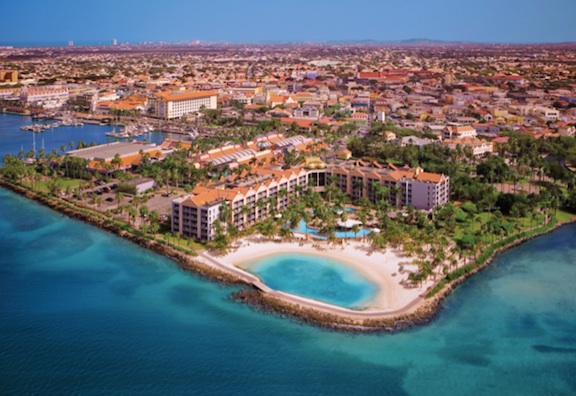Above: Aruba
By the Caribbean Journal staff
Fitch Ratings has downgraded Aruba’s long-term foreign and local currency issuer ratings to BBB- from BBB, the New York-based ratings firm announced.
The firm said the island’s sovereign creditworthiness had “deteriorated” since 2009 due to the “negative impact of recent suspensions of operations at the Valero refinery.”
But those numbers come after a five-year average growth of 1.7 percent from 2009 to 2013, when the BBB median grew by 3.1 percent in the same period.
“High dependence on cyclical tourism receipts, demographic challenges, labor market rigidities, lengthy legal disputes and structural impediments to start new businesses hinder domestic investment and economic diversification,” Fitch said.
Fitch said Aruba’s growth would average about 2.6 percent from 2014 to 2016, which was above the country’s estimated potential of 1.8 percent but lower than the expected “BBB” median of 3 percent, the firm said.
In a statement, Aruba’s government challenged the downgrade, saying the report “does not depict a true economic picture of Aruba.”
“It overlooks multiple important fiscal, economic, and structural measures we have taken to reduce Aruba’s deficits in 2014 and beyond, and does not recognize our commitment to continue to pursue a path of fiscal sustainability over the medium term,” said Juan David Yrausquin, Aruba’s Minister of Finance and Government Organization..
Aruba’s government said it was reiterating its commitment to a wider fiscal consolidation plan, including efforts to “further strengthen the tourism industry, reduce dependence on mineral fuels, and establish new economic pillars to ensure long-term economic viability and social well being.”
“We are convinced that all of these efforts will have a positive impact on Aruba’s economic future. Standard & Poor’s, another leading worldwide rating agency that rates Aruba, projects that these efforts will lead to Aruba’s gross general government debt burden stabilizing near 60% of GDP, in line with countries of similar size and GDP,” Yrausquin said.
